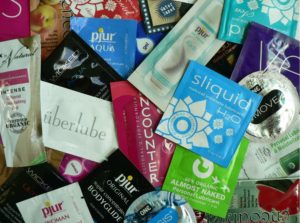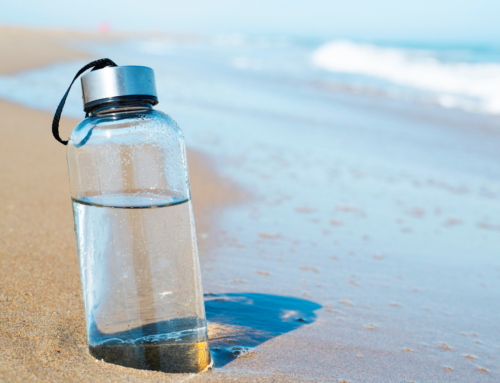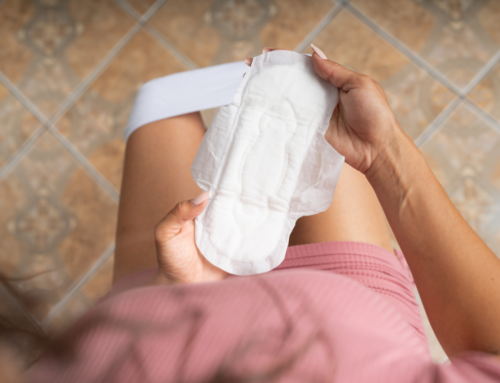A guide to Personal Lubricants
Attitudes toward the use of personal lubricants are changing. Not long ago, it was common for people to think using supplemental lubrication was a sign that something was wrong. The common attitude was that our bodies should produce enough lubricant for personal comfort and sexual activity. And that using additional lubrication should not be necessary.

Now people are discovering that using moisturizers and lubrication can improve daily comfort and enhance their sexual experiences. Personal Moisturizers are designed for personal comfort and will be absorbed into the skin to moisten and plump the tissue. Lubricants are designed to sit on top of the skin and enhance glide, and sensation. One recent study found that women age 35 to 64 using lube can make a sexual experience feel wetter and last longer. It can be a great addition to foreplay and increase sexual pleasure.
Lubricant is also a beneficial aide for returning to sexual activity after a break, such as childbirth, or surgery. Pelvic Floor therapists frequently recommend lubricants to assist with reintroducing the body to penetrative sex.
Not All Personal Lubricants are Equal
There a LOT of options out there for lubricants. Lubes can be found in pharmacies, sex shops, online, even your local grocery store. But all lubricants are not equal.
Most personal lubricants found in common retail outlets have high concentrations of unwanted chemicals such as:
- Glycerin
- Glycol
- Non Onxynol- 9
- Propylene Glycol
- Polyethylene Glycol (PEG-8)
- Other Polyquaternary compounds
These additives actually damage the outer layer of tissue called the epithelial layer, which helps protect us from infection. Studies have shown that they damage the outer layer of skin and make it easier to transmit infection such as HIV or Genital Herpes. Non-Oxynol-9 is commonly used as a contraceptive- and also as a detergent. Non Oxynol-9 can cause vaginal irritation as well and tissue damage.
In some cases, however, people reported they could not feel the difference between lubricants that damage tissue and body safe lubricants. Not “in the moment”, but the effects of using poor quality lubricants can be long term, including STDs and Yeast infections. If one of the above noted ingredients is listed in the first 4 ingredients on a label, you should just pass.
Choosing the best Lube for You
Let’s talk a little about the different types to help decide what would be the best choice for you.
Personal lubricants typically fall into one of four types; Water based, Oil based, Silicone based, and hybrid lubes. Each type has pros and cons to be considered when choosing a personal lubricant.

Water Based-
Water based lubricant is a great all-purpose lubricant that is safe for all areas of the body. It can be used with condoms and toys, as well as simply a personal moisturizer. If you want to keep your options open, water-based lubes are a safe bet. When you look at the ingredients of a water-based lube, the first ingredient should be, of course, water; or plant based, like aloe. Look for ingredients that may cause irritation such as glycerin, Nonoxynol 9, or petroleum which are more prevalent in mass marketed pharmacy and supermarket brands. These additives have been known to increase vaginal irritation and increase chances of yeast infection in some women.
There are many, many water-based products on the market. Products made by Yes, Good Clean Love, Desert Harvest, and Sliquid are some of my favorites. (Including a Sliquid product called “T-Lube” that was designed specifically for transgender men)
Oil Based-
There has been a rise in the use of oil-based lubes recently, perhaps due to a desire to use a “natural” product, such as coconut oil, or olive oil. Use plant based products rather than petrolium based such as vaseline, which trap bacteria and increase chance of infection. Plant sourced oil-based lubricants provide a smooth glide, and better lasting power than most water-based lubes. The downside is that oil-based lubes are not compatible with latex condoms or latex toys. Oil has been shown to increase latex breakdown, and is associated with condom breakage, rendering them ineffective. There is also some question regarding the body’s ability to clear oils effectively from the mucus membrane, with potential increased risk of infection, but more research is needed to be conclusive.
While Coconut oil seems to be the prevailing favorite, Ah! Yes OB, is certified organic, and has incredible lasting power.
Silicone Based-

Under the right circumstances, Silicone lubes are a great choice. They tend to be more slippery than water-based lubricants and are great for pelvic pain or sensitive areas. Silicone is not absorbed by the body, but sits on the skin and mucus membrane, and provides long lasting glide. It is safe for use with condoms and vaginal and anal sex. Silicone lubricant is Derma-protective. It seals the surface of the skin, which provides an additional measure against STD transmission, and helps prevent drying the skin.
Caution– Silicone lubes do not work well with silicone toys. They can react, changing the silicone properties and causing the toy surface to break down, and become sticky. The resulting compounds have not been sufficiently tested for body safety. So this should be avoided. Also- Silicone lubricant alone should not be considered a sufficient barrier for protection from STD transmission. It should be thought of only as an added measure.
Great silicone lubricant brands include Pjur, Gun Oil, and Uberlube. Pjur has an additional line of medical grade lubricant called Pjur Med- that is specifically designed for people that are more fragile and susceptible to infection. Stick to the silicone variety of Gun Oil, rather than the water-based. And Uberlube has a convenient pump bottle and is also available in a handy travel size.
Hybrid personal lubricants-
Hybrid lubes are water based with a small amount of silicone. The additional silicone provides better slip, and longer lasting glide, beyond typical water-based lubricants. The idea is that there is not enough silicone to react with silicone toys, but there is some controversy, so use caution, and test it on your toys before using internally.

Special Considerations-
CBD lubricants- A few CBD oils have recently become available for use as a lubricant, which can be beneficial for its anti-inflammatory and/or pain-relieving qualities, so good for painful sex. I have recently discovered a water-based CBD lubricant called Kush Queen, which is the only one I am aware of that is safe to use with condoms.
Once you decide what works best for your needs, the choices abound. We have only touched the surface here with these recommendations. If you discover another product you just love, Let me know! I’m always on the lookout.
Holly McDonald is a Pelvic Floor Physical Therapist practicing in Winston Salem NC. She has an outpatient clinic specializing in pelvic health. Contact Relief Physical Therapy for more information







